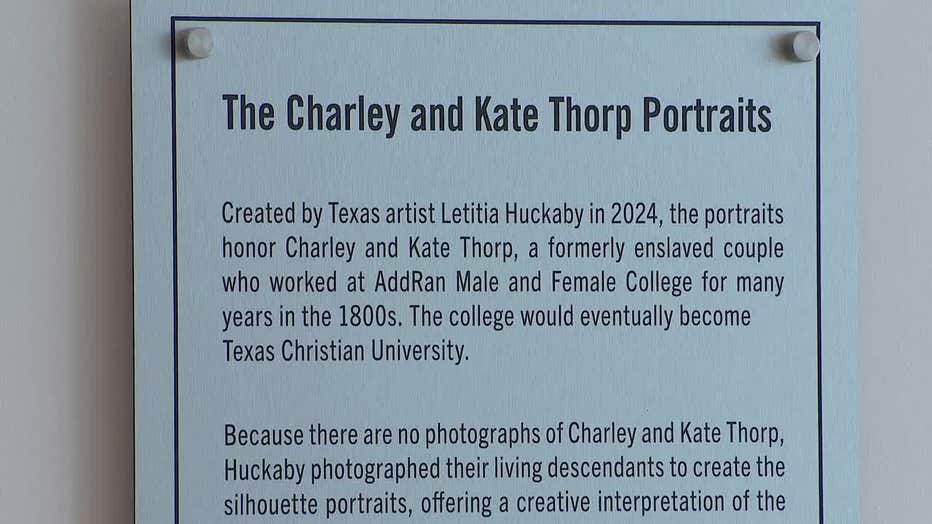TCU unveils "The Portrait Project" honoring former slaves who helped form university
TCU unveils "The Portrait Project" honoring former slaves
There are no confirmed images but plenty of documented references about husband and wife Charley and Kate Thorpe, former slaves who became trusted workers who compassionately helped form what we know today as TCU. The Thorps were never recognized — until now.
FORT WORTH, Texas - Texas Christian University is reaching into the pages of history by honoring an enslaved couple from the 1800s.
The couple is being featured in what the university calls "The Portrait Project" which was officially unveiled on Thursday.
There are no confirmed images but plenty of documented references about husband and wife Charley and Kate Thorpe, former slaves who became trusted workers who compassionately helped form what we know today as TCU.

"We know this to be true because Randolph Clark, the co-founder of TCU, wrote extensively about Charlie Thorpe," explained Marcellis Perkins, TCU race and reconciliation researcher.
The original TCU campus was built in Thorpe Springs, Texas, in the 1800s.
"We read that Charlie was a firefighter in the town, helped nurse sick students, did security," Perkins said. "His wife was also a nurse on campus, helped with laundry and other custodial services."
The Thorps were never recognized — until now.
In 2020, a campus race and reconciliation initiative began. The research was a deep dive into Charley and Kate Thorp and the discovery of their descendants.
Photos show family members who are a part of the Thorp ancestry gathered on TCU’s campus.

Debra Holmes remembers the call and says, at the time, knew nothing of her family’s connection to TCU.
"Ever since this has started, I have really been happy about it," she said. "He was always helping somebody. They say he would stop and help the kids when they were sick. He rang the bell. He was the fireman. He did all these things for the school that he could not attend. But as I said before: God has a plan."
In a culminating gesture, new commissioned portraits depicting the essence of Charley and Kate Thorp — utilizing the silhouettes of their descendants — now hang in the TCU administration building.

"I don’t think we can ever have all the pieces, but I think we have more than what we started with," Perkins said. "To say it is emotional I think is not enough words to really capture what it felt like."
"By him not being recognized as he should’ve been, I think like I’m stepping into his shoes to be recognized for him. To be able to speak for him," Holmes said.
Holmes says she has a great-granddaughter who now has her sights set on becoming the first in their family to attend TCU.

